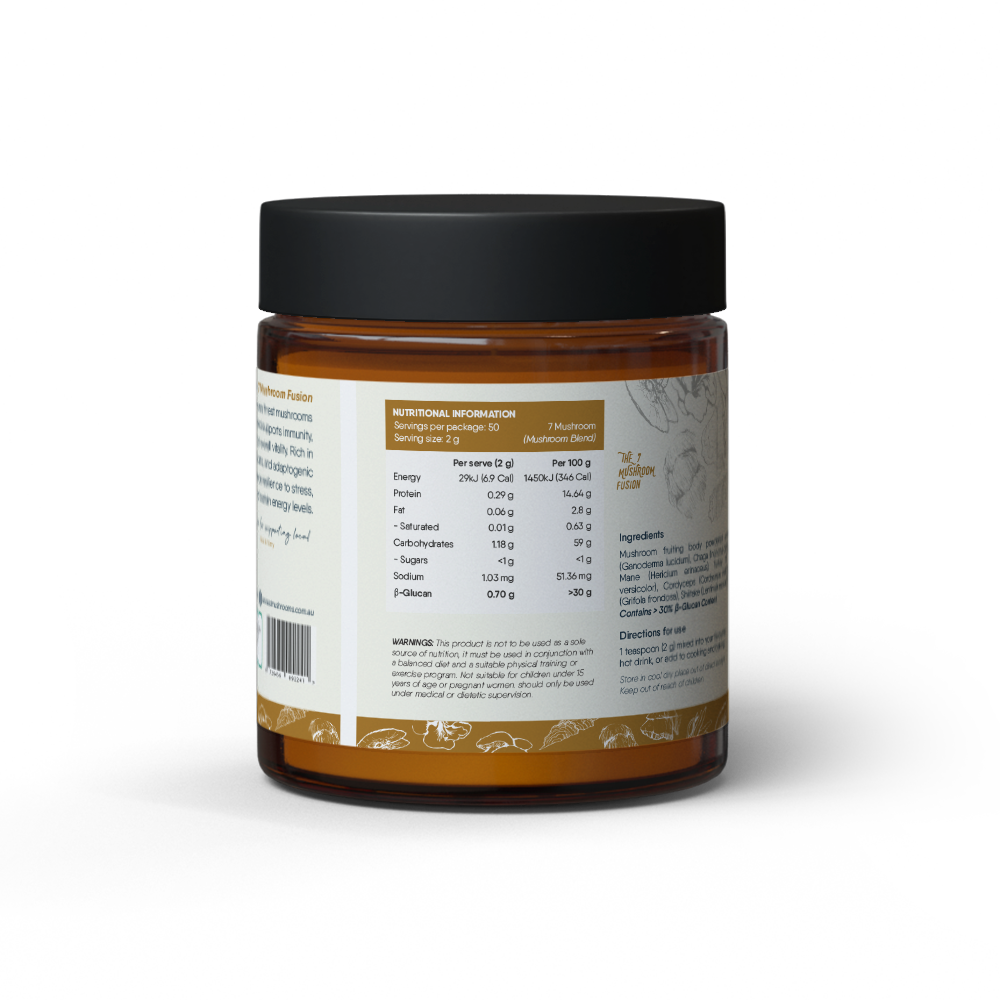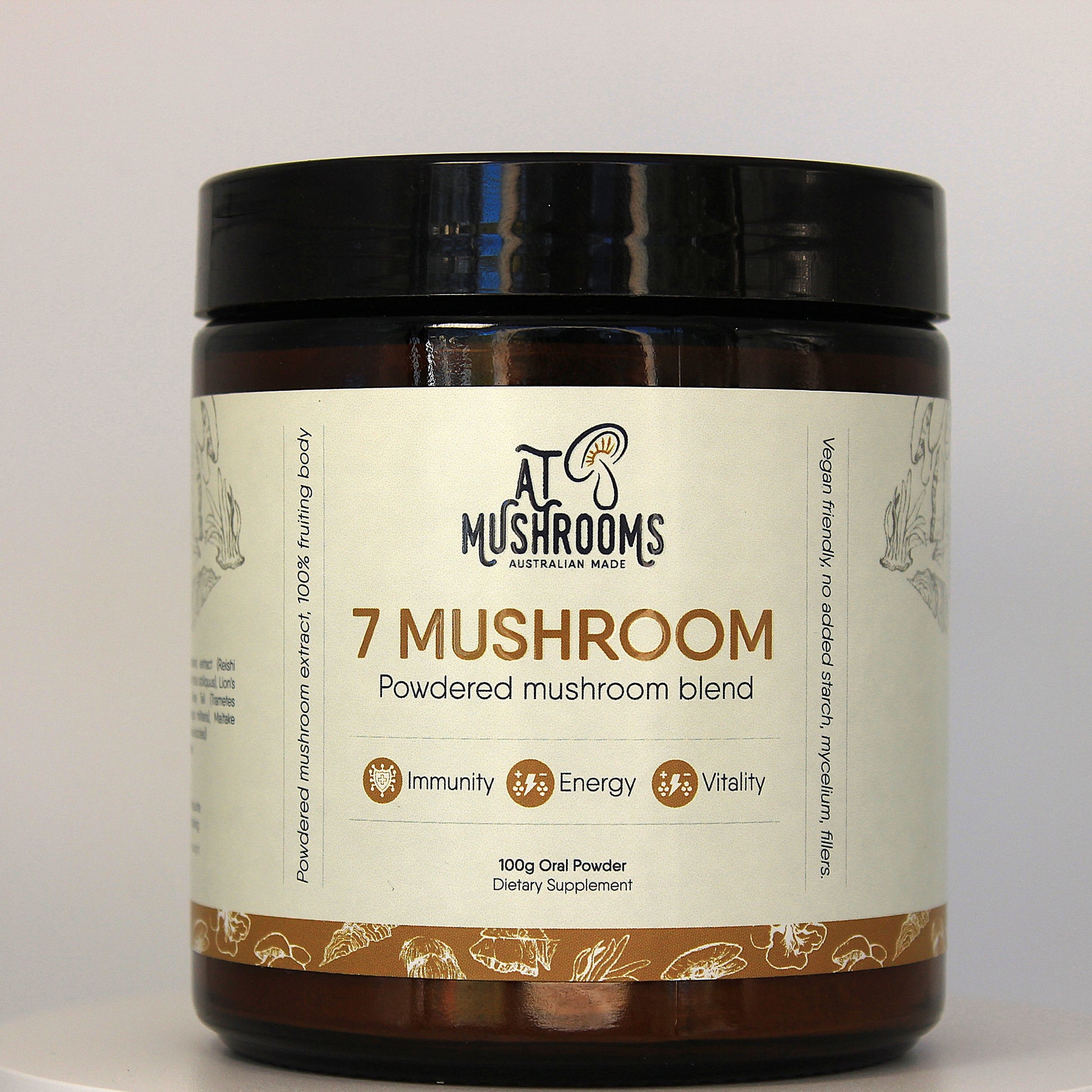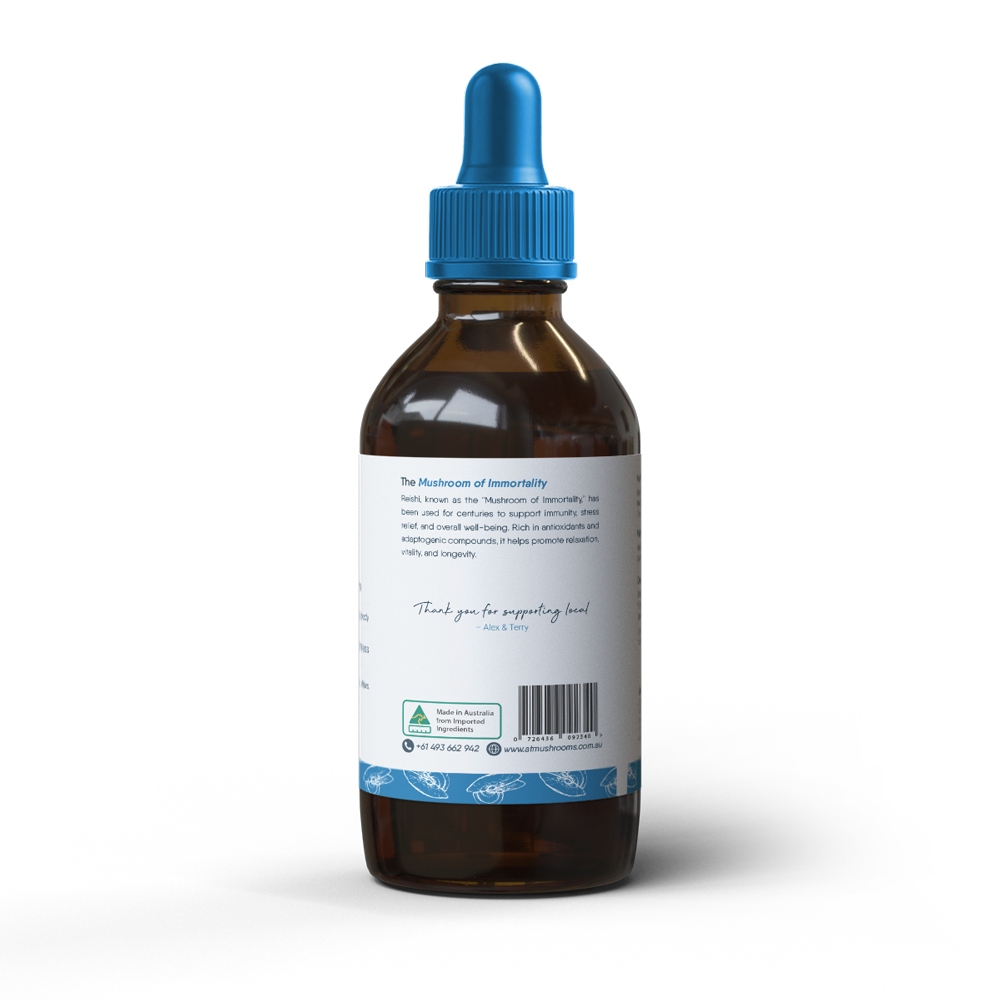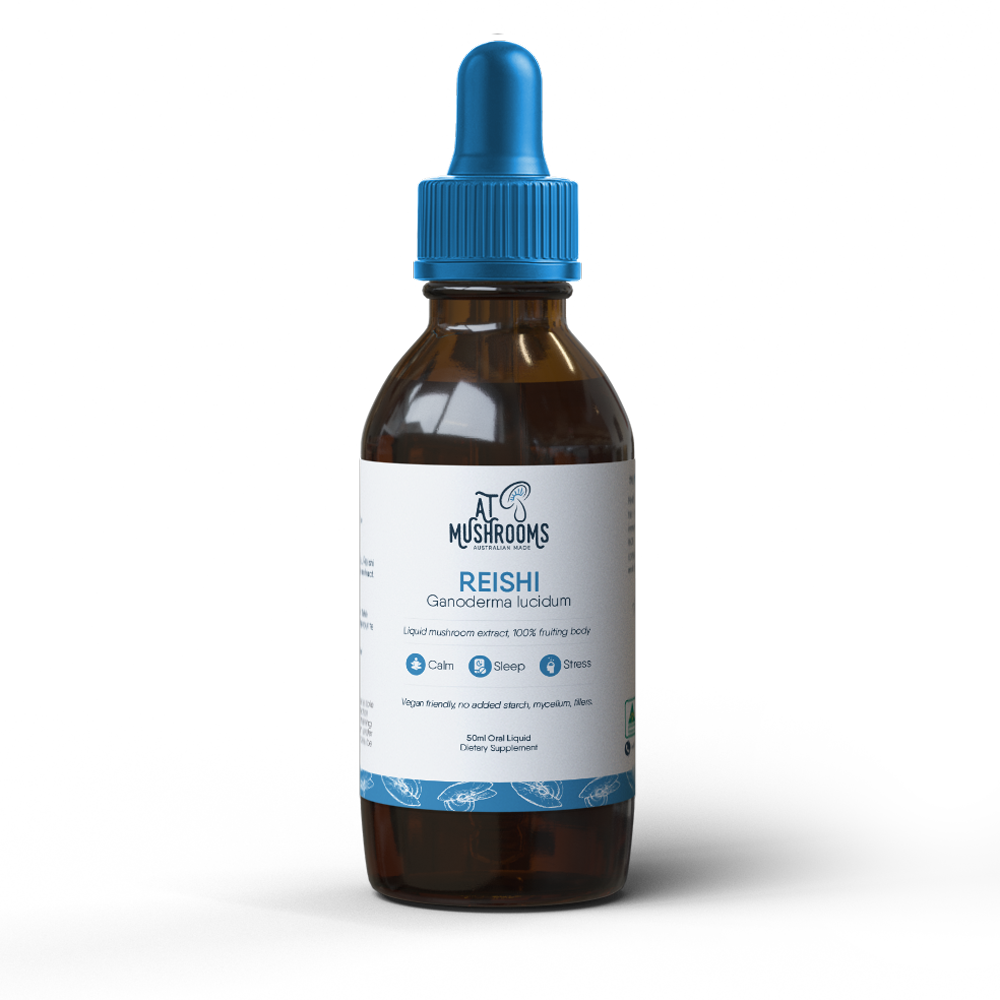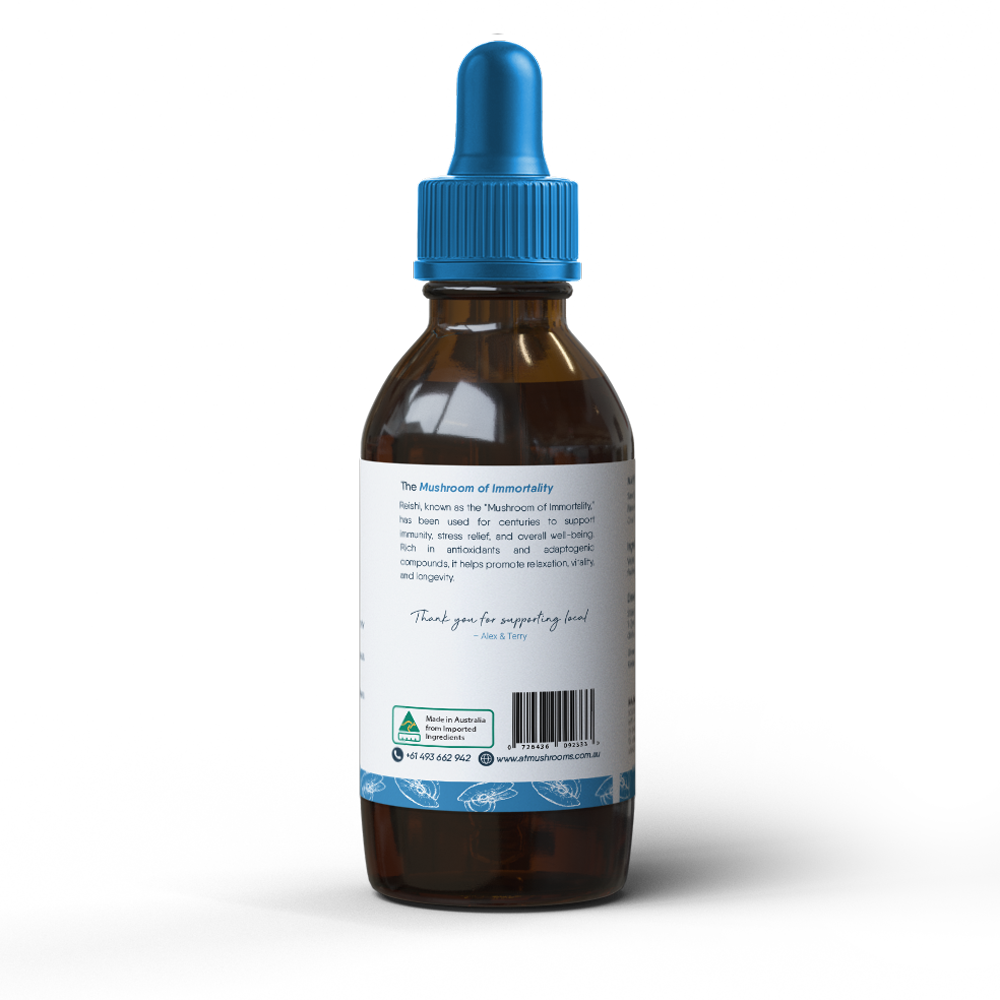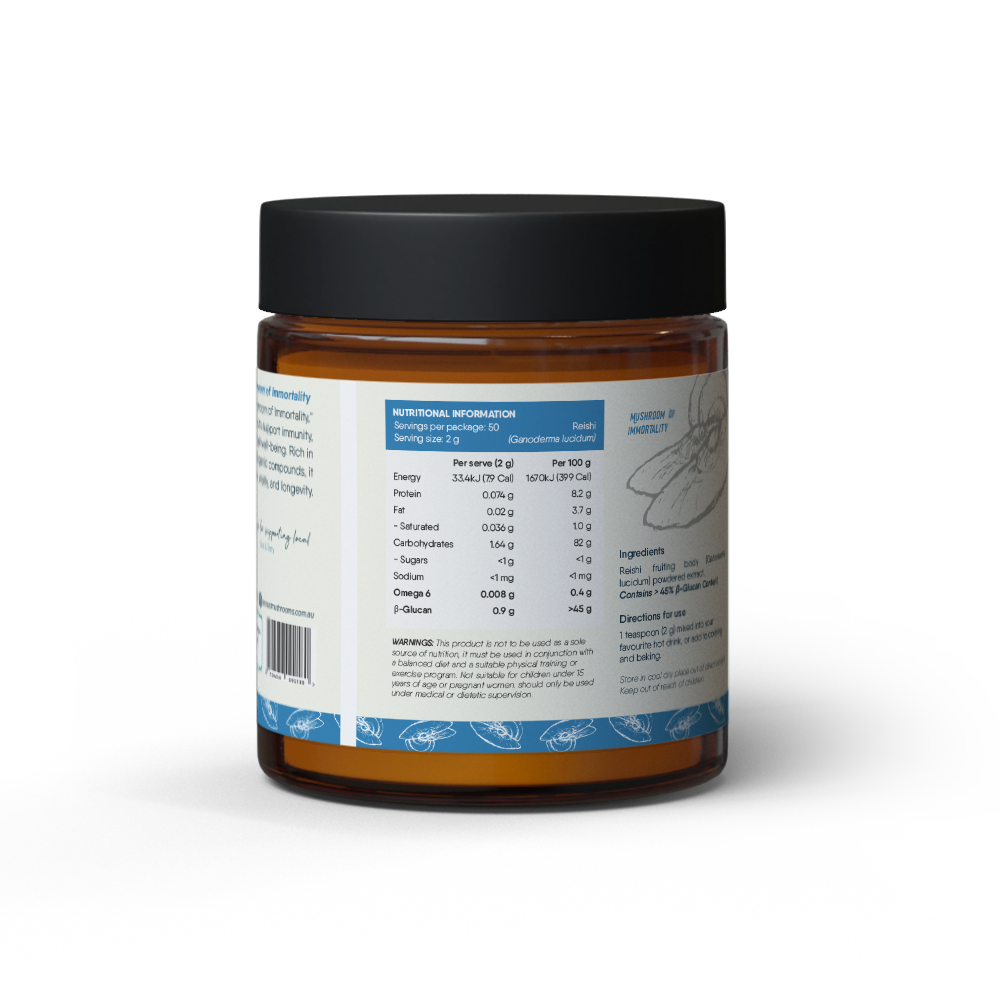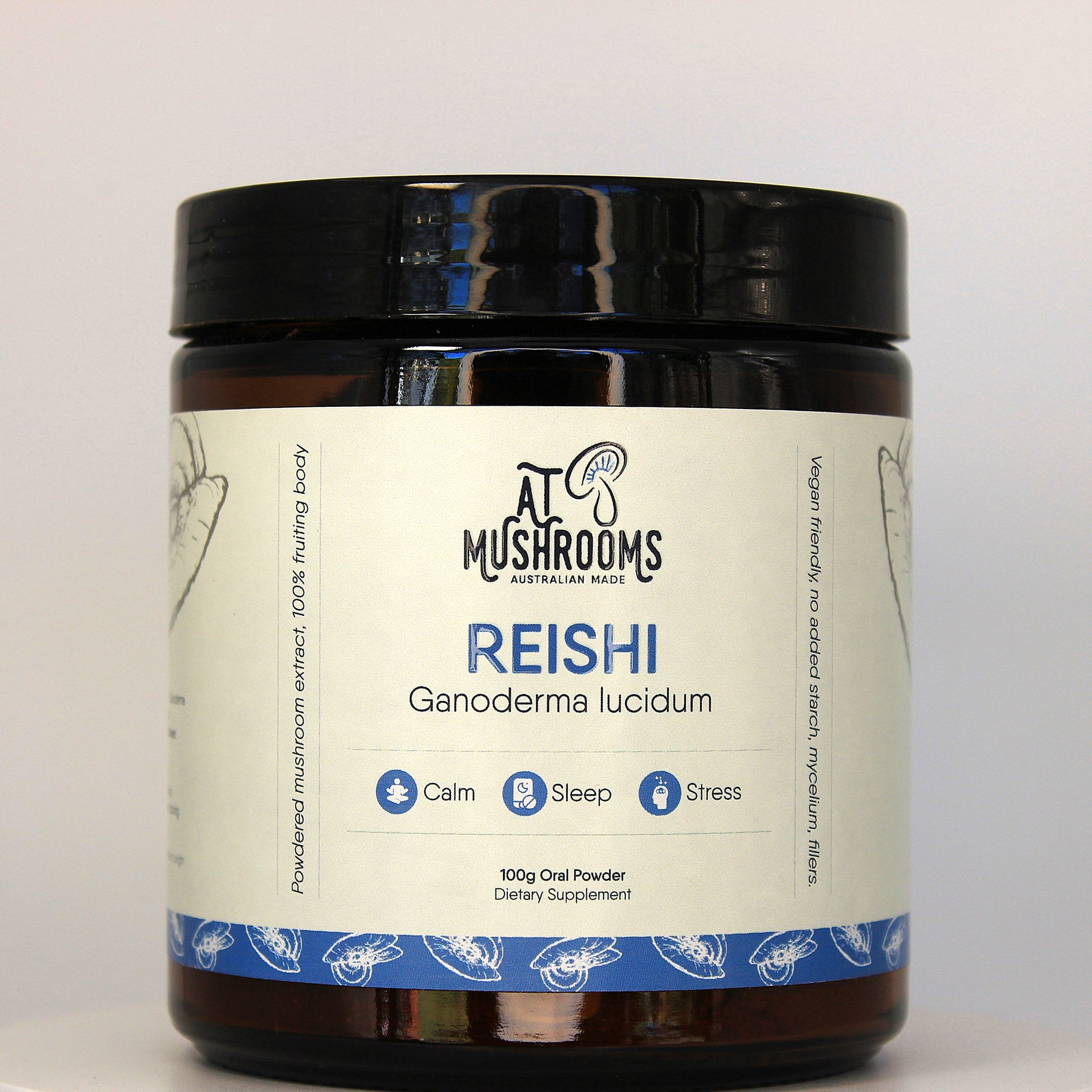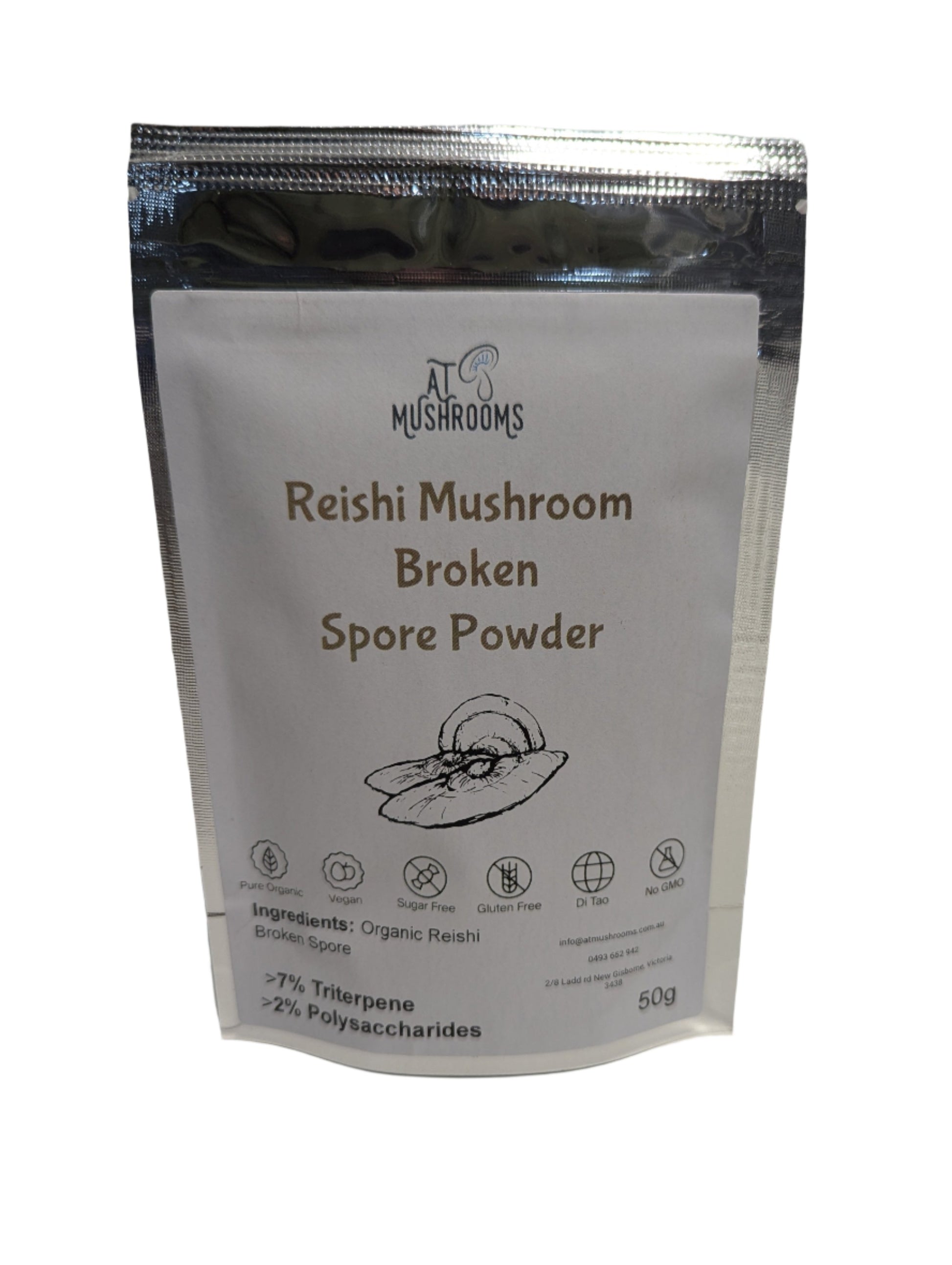Reishi (Ganoderma lucidum)
Reishi (Ganoderma lucidum) is revered as the "king of herbs" and stands among the most powerful medicinal mushrooms for stress reduction and immune support. Known as the "mushroom of immortality," Reishi has been used in traditional Eastern medicine for thousands of years. Discover our premium Reishi products to experience these remarkable adaptogenic benefits.
Quick Navigation
Jump to section:
The reishi mushroom, or Lingzhi, is a native fungus of East Asia that grows at the base and stumps of deciduous trees. Known scientifically as Ganoderma lucidum, they're technically different from the East Asian species (Ganoderma lingzhi), although they are part of the same family. Forming as a reddish brown "bracket fungus," they're highly prized in Eastern medicine, earning the name "king of herbs" and "10,000-year-old mushroom."
Research indicates several health properties, including:
- Immunomodulating
- Stress Reduction and mood enhancement
- Anticancer
- Heart boosting
- Antioxidant
Immunomodulating
You don't earn a title like "king of herbs" without an impressive resume. Nothing is more astounding than Reishi's immune-boosting properties1. Several studies have reported the same findings, both in and out of the test tube2.
Reishi appears to modulate (aka control) all major aspects of the immune system, including immune cells like B and T lymphocytes, macrophages, and natural killer cells. Furthermore, it promotes immune organ growth, cytokine release, and triggers various signaling pathways1.
In a 2006 study, reishi increased the number of white blood cells in those with colorectal cancer (potentially helping those on heavy chemotherapy)3. In comparison, another study on football players noted that the fungus bolsters lymphocyte function after exposure to stressful conditions4.
In addition to these miraculous benefits, reishi mushrooms may also soothe inflammation5. These anti-inflammatory properties have a solid anecdotal basis in people suffering from arthritis or gout, although further research is needed.
Ready to support your immune system? Try our Reishi liquid extract for maximum bioavailability and immune-modulating benefits.
Stress Reduction and Mood Enhancement
Stress, fatigue, anxiety, and depression are the fearsome foursome of physical and mental health. Even ignoring the immune effects of reishi mushrooms, the benefits of these mushrooms on stress and fatigue are worth considering.
In just 8 weeks, a study in 132 people with neurasthenia (associated with aches, pains, dizziness, headaches, and irritability) found an improvement in fatigue and well-being after taking the supplement6. Another 2012 study confirmed the findings in breast cancer patients, noting a decrease in fatigue, anxiety, depression, and uptick quality of life after 4 weeks7.
Stress and mental illness are closely associated with poor or insufficient sleep. An analysis in mice identified a potential pathway for sleep improvement via gut microbiota and serotonin8. So, it won't just boost your mood but also soothe your sleep.
For convenient daily stress support, our Reishi powder can be easily added to evening teas or smoothies to promote relaxation and better sleep quality.
Anticancer
In vitro (i.e., in a test tube) studies demonstrated reishi extract kills cancer cells9,10. In the body, the fungus could be beneficial for reducing inflammation in prostate and colorectal cancer, as well as limiting cancer development11,12. Some evidence also exists for a better quality of life after cancer treatment13.
It should be noted, however, that a 2016 Cochrane review found insufficient evidence for reishi as a first-line cancer treatment13.
Heart boosting
Strong evidence points to reishi's effects on blood sugar and lipids: it decreases blood sugar, increases HDL cholesterol, and decreases triglycerides – all beneficial for the heart14. However, other studies question these findings, seeing no overall effect15,16,17.
More research is needed to confirm these benefits.
Reishi is also featured in our 7 Mushroom Blend, providing comprehensive adaptogenic support alongside six other powerful medicinal mushrooms.
Related Mushrooms for Comprehensive Wellness
Reishi works synergistically with other medicinal mushrooms to support holistic health:
- Lion's Mane - Enhances cognitive function and nerve health, complementing Reishi's stress-reducing properties
- Cordyceps - Boosts energy and stamina while Reishi promotes recovery and rest
- Turkey Tail - Provides additional immune system support with PSP and PSK compounds
Learn More About Medicinal Mushrooms
Expand your knowledge with our educational resources:
Deep dive down the mycelium rabbit hole and learn about the benefits of all the mushrooms by reading scientific studies from around the world.


